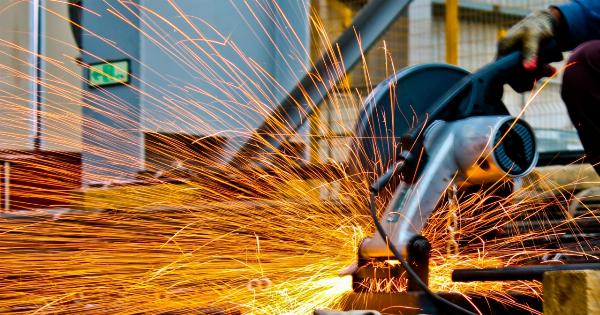Iron is an essential mineral that plays a vital role in the body’s overall health and functioning. It is necessary for the production of hemoglobin, a protein in red blood cells that carries oxygen from the lungs to different parts of the body.
Iron also supports energy production, brain function, and a healthy immune system.
Iron deficiency can lead to a condition called anemia, which can cause fatigue, weakness, paleness, and shortness of breath. To avoid such health issues, it’s important to meet your body’s iron needs through a nutrient-rich diet.
1. Spinach
Spinach is a dark, leafy green that is packed with nutrients including iron. It is a great choice for vegetarians and vegans as it provides a good amount of non-heme iron.
Non-heme iron is the type of iron found in plant-based foods and is slightly less easily absorbed than heme iron from animal sources. To enhance the absorption of non-heme iron, it’s recommended to consume spinach along with vitamin C-rich foods.
2. Lentils
Lentils are legumes that are not only a great source of protein and fiber but also iron. They are versatile, easy to cook, and can be added to various dishes like soups, stews, and salads.
Lentils offer a substantial amount of non-heme iron, making them an excellent choice for plant-based iron consumption.
3. Beef
Beef is known for being an excellent source of heme iron, which is highly absorbable by the body. It is a great option for individuals who follow a carnivorous diet.
Including moderate amounts of lean beef in your diet can help meet your body’s iron needs effectively. Additionally, beef contains other essential nutrients such as protein, zinc, and vitamin B12.
4. Pumpkin Seeds
Pumpkin seeds are not only delicious but also a rich source of iron. They can be consumed as a snack, added to salads, or used as a topping for various dishes.
Pumpkin seeds are also a good source of healthy fats, magnesium, and antioxidants, making them a nutritious choice for meeting your iron needs.
5. Quinoa
Quinoa is a popular grain alternative that is gluten-free and loaded with nutrients, including iron. It is not only a great source of non-heme iron but also provides high-quality protein and dietary fiber.
Quinoa is easy to cook and can be used in various dishes like salads, stir-fries, and as a substitute for rice or other grains.
6. Oysters
Oysters are known for their rich iron content, which is highly bioavailable. They are also a good source of zinc, vitamin B12, and omega-3 fatty acids.
However, oysters are not suitable for individuals with shellfish allergies or those who follow a vegetarian or vegan diet.
7. Chickpeas
Chickpeas, also known as garbanzo beans, are not only a tasty addition to meals but also a good source of iron.
They are commonly used in Mediterranean and Middle Eastern cuisines and can be enjoyed in various forms like hummus, roasted snacks, or added to curries and salads. Chickpeas are also rich in protein, dietary fiber, and other essential minerals.
8. Dark Chocolate
Dark chocolate lovers rejoice! Dark chocolate with a high cocoa content is a surprising source of iron. Additionally, it contains antioxidants and has numerous health benefits when consumed in moderation.
Be sure to opt for dark chocolate with at least 70% cocoa content to reap the iron benefits without an excessive amount of added sugars.
9. Tofu
Tofu is a popular plant-based protein source that is also rich in iron. It is made from soy milk and is an excellent alternative to meat for vegetarians and vegans.
Tofu is versatile and can be used in a variety of dishes, including stir-fries, soups, and even desserts.
10. Broccoli
Broccoli is a nutritious vegetable that offers an array of health benefits. Besides being rich in vitamins and fiber, it is also a decent source of iron. Including broccoli in your diet can help boost your iron intake.
To maximize iron absorption, try steaming or lightly cooking broccoli rather than consuming it raw.
11. Fortified Cereals
Fortified cereals, such as fortified breakfast cereals, can be an easy and convenient way to ensure you meet your body’s iron needs. Many manufacturers fortify their cereals with various vitamins and minerals, including iron.
When selecting a cereal, opt for a whole grain option with minimal added sugars for a healthier choice.
12. Kidney Beans
Kidney beans, like lentils and chickpeas, are legumes that are rich in iron. They can be used in a variety of dishes like chili, salads, or as a filling for wraps or tacos.
Kidney beans are also packed with protein, fiber, and other important nutrients, making them a highly nutritious choice.
Remember that while incorporating these iron-rich foods into your diet can help meet your body’s iron needs, it’s essential to maintain a balanced and varied diet overall.
If you suspect you have an iron deficiency or any other health concerns, it’s always best to consult with a healthcare professional for an accurate diagnosis and appropriate treatment.































